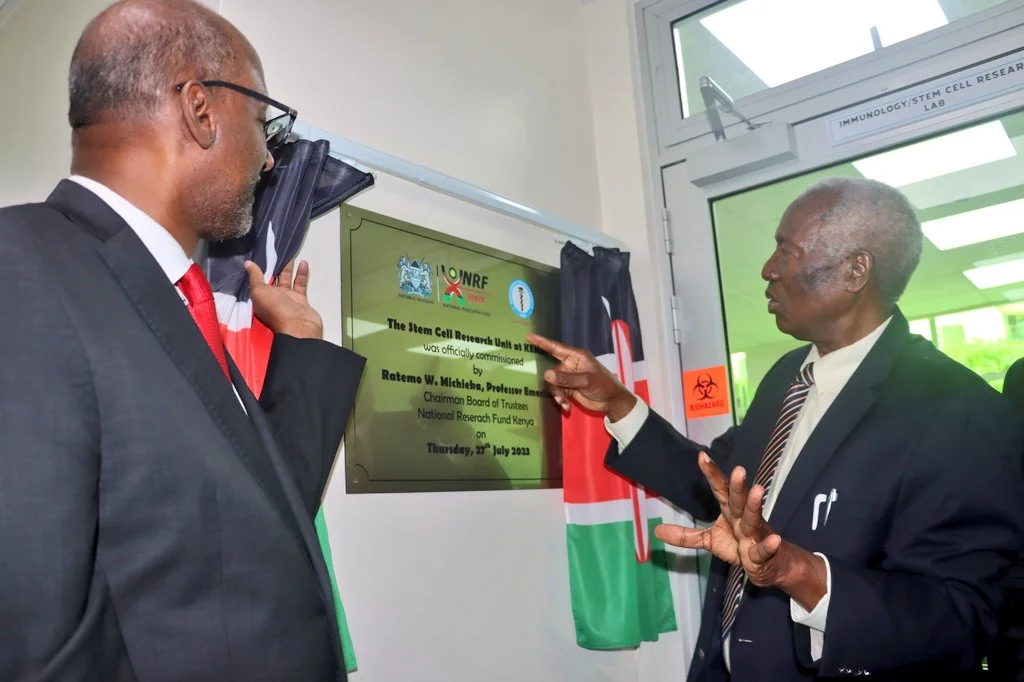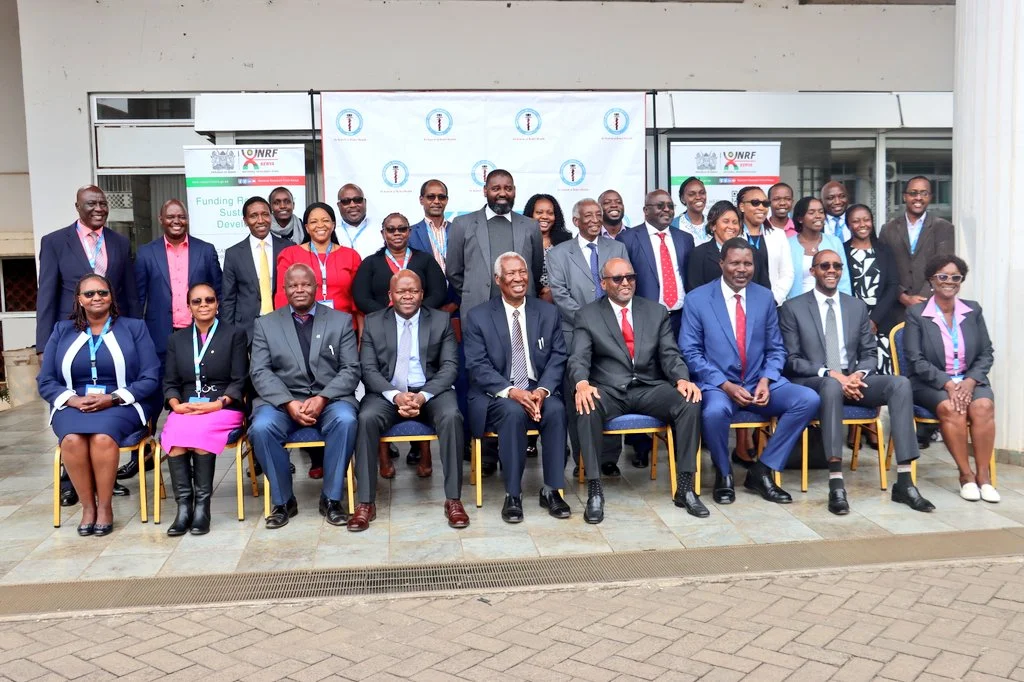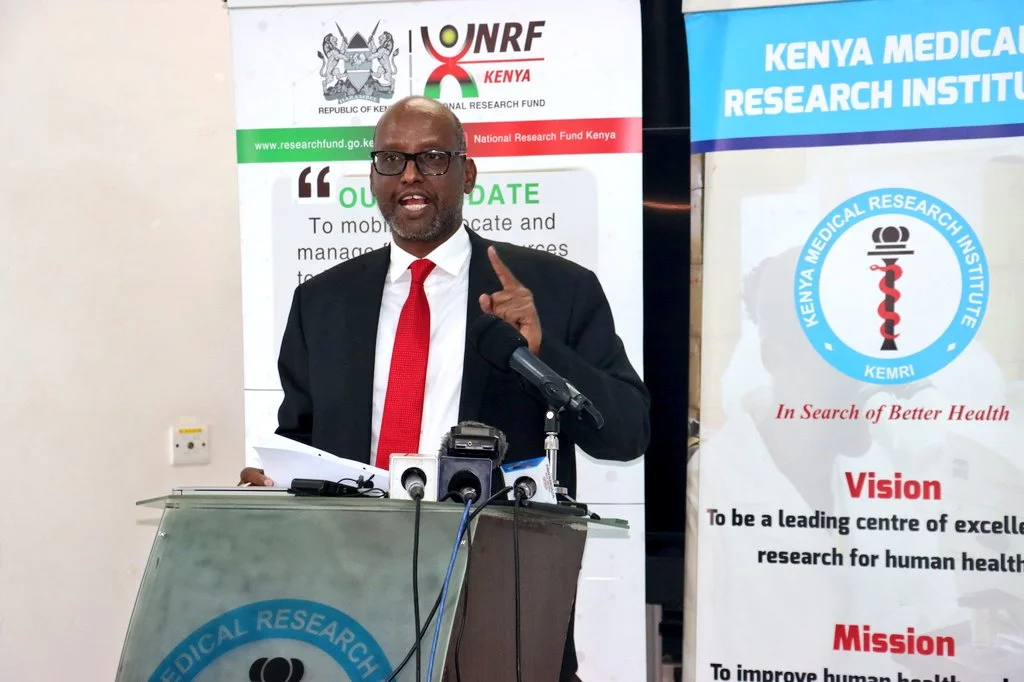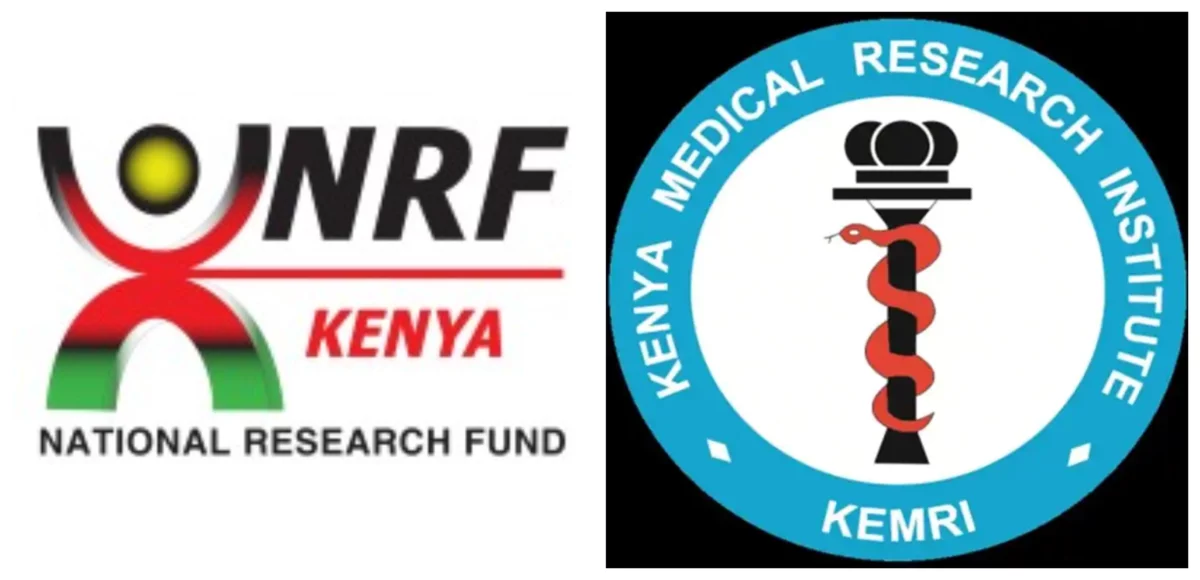The Kenya Medical Research Institute (KEMRI) has received a significant boost to its research endeavors from The National Research Fund. With a generous grant of Ksh.77.2 million, KEMRI is set to embark on groundbreaking research on stem cell therapy.

This move appears to align perfectly with President William Ruto’s vision for bolstering the innovation and technology sector. The move comes as the government strives to meet its target of allocating 2% of GDP towards medical research and innovation, a figure that currently stands at 0.8%.
Stem cell therapy has emerged as a beacon of hope in the medical world. It promises to offer potential cures for chronic and non-communicable diseases (NCDs). NCDs contribute to 50% of in-patient hospital admissions and 27% of all annual deaths in the country. This therapy is based on harnessing the regenerative properties of stem cells. It has demonstrated immense promise in treating conditions that were once considered incurable.

But what exactly is stem cell therapy, and why is it garnering so much attention from researchers and medical professionals?
Understanding Stem Cell Therapy
Stem cells are unique cells with the extraordinary ability to differentiate into specialized cell types and self-renew. Thus, creating identical copies of themselves. These remarkable characteristics make them invaluable for regenerative medicine. Stem cell therapy involves the transplantation or manipulation of these cells to repair, replace, or regenerate damaged or diseased tissues and organs.
Important Facts about Stem Cells
Pluripotency: Embryonic stem cells can differentiate into any cell type in the human body. This property makes them incredibly flexible for potential therapeutic applications.
Adult Stem Cells: Also known as somatic stem cells. They are found in various tissues and organs of the human body. These cells play a crucial role in tissue maintenance and repair. Although they are multipotent- the ability to differentiate into a limited range of cell types, they still hold significant therapeutic potential.
Induced Pluripotent Stem Cells (iPSCs): iPSCs are adult cells that have been reprogrammed to revert to a pluripotent state. This breakthrough discovery by Nobel laureate Shinya Yamanaka opened up new avenues for personalized regenerative medicine.

Disease Modeling: Stem cells allow researchers to create disease models in a laboratory setting. By generating specific cell types affected by a disease, scientists can study the mechanisms underlying the condition. This will help screen potential drug candidates more efficiently.
Ethical Considerations: The use of embryonic stem cells has raised ethical debates. Its major one is the destruction of embryos during the extraction process. However, advances in research have shifted focus towards utilizing adult stem cells and iPSCs. Such approaches circumvent these ethical dilemmas.
KEMRI’s Pursuit of Stem Cell Therapy
The grant from the NRF comes at a pivotal moment for KEMRI as they intensify their research on stem cell therapy. The institution firmly believes that this revolutionary treatment holds the key to transforming healthcare outcomes. For countless patients suffering from NCDs and other chronic conditions, this could be the ultimate cure.

In light of this development, KEMRI is appealing for further financial support to expedite its research efforts. At present, the allocation for medical research stands at 0.8% of GDP, falling short of the government’s target of 2%. The call for increased funding resonates with the urgent need to bolster research institutions and recruit more talented personnel to accelerate medical innovations.
Also Read:
Davy Koech: President William Ruto Pardons Ex-KEMRI Boss Jailed for Corruption
KEMRI Chairperson Abdulahi Ali, and NRF Chairperson, Ratemo Michieka, jointly emphasized the importance of proper publicity for their stem cell therapy project. Public awareness can help garner more support from both the government and interested parties. Consequently paving the way for additional funds and human resources to support this transformative research.
KEMRI’s dedication to advancing this innovative approach, coupled with the government’s support, marks a new era of medical progress in Kenya. As the nation moves forward, it is crucial for all stakeholders to rally behind research and innovation. Putting aside political differences and shortcomings will enable us to witness the impact that stem cell therapy can have on the well-being of future generations.
Subscribe to our YouTube channel Switch TV
The journey towards a healthier and brighter future starts with embracing the potential of stem cell therapy and investing in the pioneering work of institutions like KEMRI.















